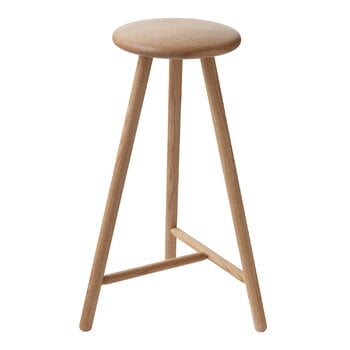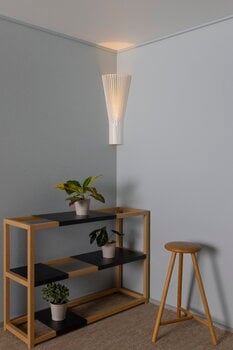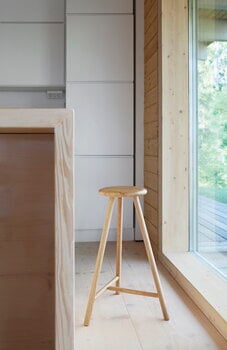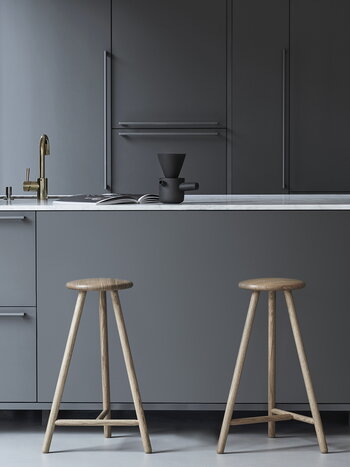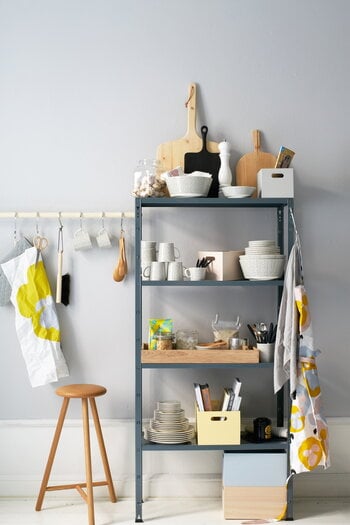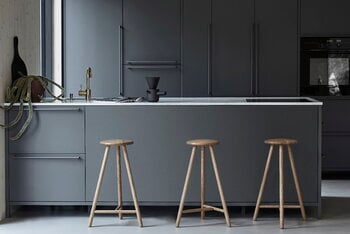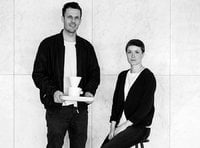The Perch bar stool from Nikari features a simple, clean-lined design that pays respect to Japanese aesthetics. Crafted from oak, the round seat stands on three slender legs, united by a convenient foot bar. Designers Wesley Walters and Salla Luhtasela drew inspiration for the seat’s smooth shape from the wooden door handle of an old building in Helsinki. Their design won the first FDS Award design competition, organised by Finnish Design Shop in 2016, and became a part of Nikari’s collection the same year. The stool is manufactured by skilled craftsmen in Finland, and the minimal amount of material makes it both a minimalist and an ecological piece of furniture. Due to its elegant form, Perch is a future classic that will stand the test of time.
Nikari products are made in Finland using only certified wood.
